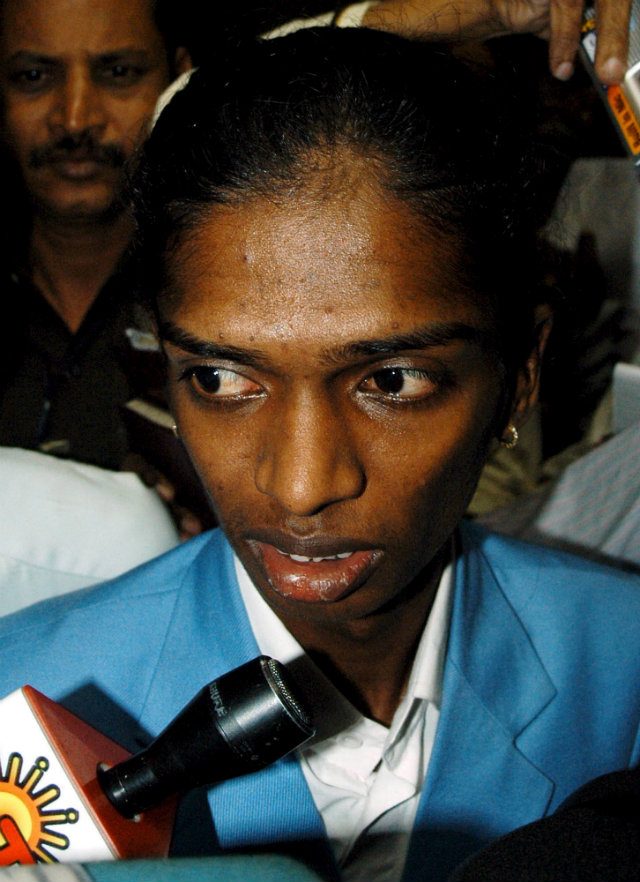SUMMARY
This is AI generated summarization, which may have errors. For context, always refer to the full article.

For the Philippines, the controversy over the exclusion of naturalized basketball player Andray Blatche at the 2014 Incheon Asian Games is still fresh on everyone’s minds. Samahang Basketbol ng Pilipinas, which oversees international basketball in the country, initially threatened a boycott before compromising to reactivate Marcus Douthit, who has been Gilas Pilipinas’ naturalized player since 2011, despite not being on the original provisional roster.
Though the Olympic style competition is among the most prestigious in Asia, it hasn’t been without controversy in the past.
As the 17th Asiad’s kickoff approaches on September 19, look at some of the memorable scandals to hit the Asian Games.
Tragedy strikes equestrianism
During the equestrian competition at the 2006 Asian Games in Doha, 47-year-old South Korean rider Kim Hyung-chil was killed at the eighth jump on the cross-country course.
Rain had been falling steadily as tragedy befell Kim, a father-of-two from Seoul who had won the gold medal in the event in Pusan in 2002. The front legs of his horse, Bundaberg Black, hit the 1.08 meter jump, one of the smallest on the course, throwing Kim over. The horse landed on the helpless rider, crushing his chest and head.
Kim never regained consciousness despite receiving immediate medical attention. He was later buried with honors in Korea’s National Cemetery and posthumously received the country’s sporting medal.
Bodybuilder lands in trouble
Bodybuilding featured for the second and last time in Doha in 2006 and was marked by Iraq’s Saad Faeaz becoming the only athlete in Asian Games history to be thrown out for doping without undergoing a laboratory test.
Faeaz was caught with 134 ampules of nandrolone, an anabolic steroid, on arrival at Doha airport. Bizarrely, he was still allowed to compete on a technicality in the 75kg category four days later and finished seventh, before later being disqualified.
It was not the only scandal to strike the sport. Judging standards were widely criticized by many countries with Malaysia protesting vehemently after their hot favorite Sazali Samad, winner of the bantamweight “Mr. Universe” title, was awarded only second place.
‘Sockgate’ sparks stitch-up claims
One of the Games’ most reverberating rows had an unusual source: a taekwondo competitor’s socks.
Taiwan’s Yang Shu-chun staged an hour-long sit-in when she was disqualified, when on the brink of victory in the first round in 2010, for having unauthorized scoring sensors on her socks.
Politicians in Taiwan claimed the disqualification was “an insult” to the country, and conspiracy theories abounded over “sockgate” when China’s Wu Jingyu – Yang’s main rival – went on to win gold.
The Asian Taekwondo Union’s website was hacked after it published an article titled “Shocking Act of Deception by Chinese Taipei”.
India’s cricket boycott
Guangzhou 2010 included the first official international cricket matches ever staged on Chinese soil, but the sport’s triumphant Asiad debut was soured when powerhouse India refused to take part.

Despite having been a prime mover in having cricket added to the Games program, India cited “prior international commitments” for pulling out, prompting a war of words with arch-rivals Pakistan who declared that unlike India they would honor their commitment to “our close friend” China.
Bangladesh won the gold medal by defeating Afghanistan, who had pulled off a shock victory over Pakistan in the semi-final.
Failed gender test
Leading Indian female athlete Santhi Soundarajan was stripped of the 800m silver medal in Doha 2006 after failing a gender test.
Soundarajan was shunned in her home village after the news broke and fell into depression, eventually finding work in a brick kiln despite being one of India’s most decorated athletes with 11 international medals.
The Tamil Nadu government finally stepped in two years ago to recognize her achievements and assist her. The result was that in April this year, Soundarajan realized a long-held ambition and became a qualified athletics coach. – Rappler.com
Add a comment
How does this make you feel?
There are no comments yet. Add your comment to start the conversation.